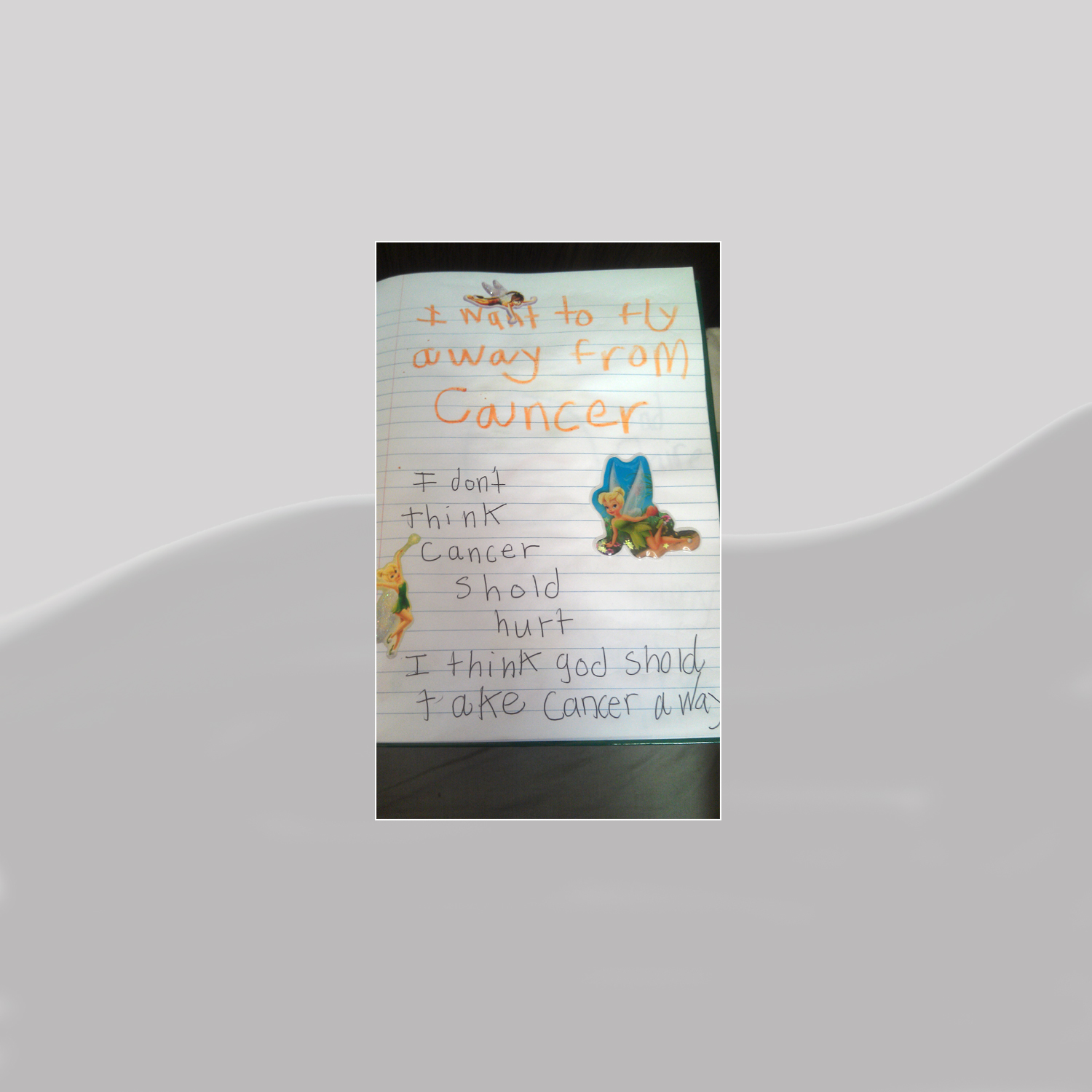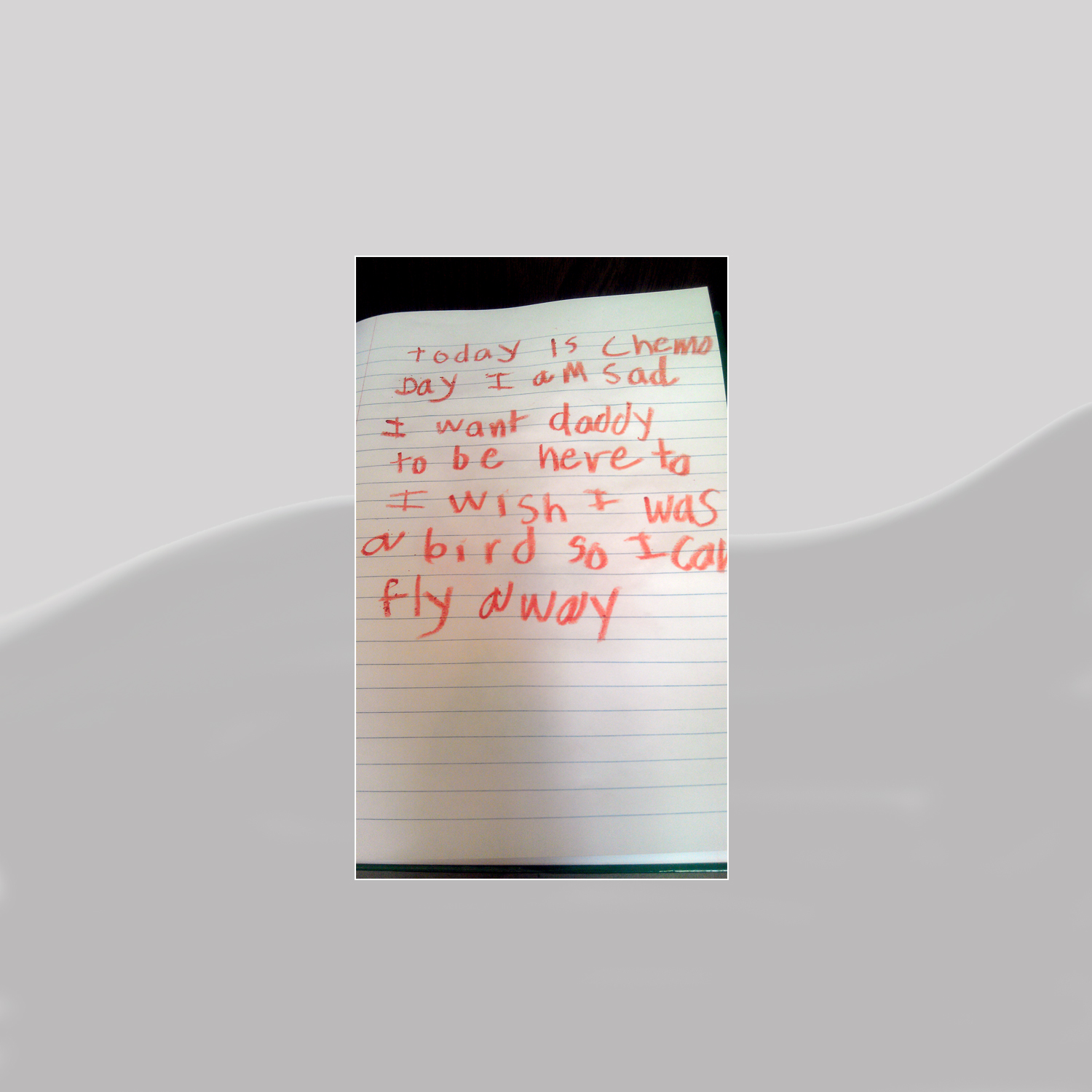Uncovering Dying Daughter Hoax That Lured in Several Celebrities
"Nightline" producer explains how she investigated an elaborate hoax.
Nov. 6, 2013— -- It all started on an autumn evening in 2012 at a charity event on the rooftop of a Los Angeles hotel. I bumped into "Wipeout" host John Henson, and introduced myself as a "Nightline" producer and therefore a distant cousin from the same ABC family.
"You work for 'Nightline.'" he said, leaning in, "Then I have a story for you."
Little did I know that the story that I was about to hear would send me on a year-long journey to discover complex and multi-layered truths tangled up in a web of lies.
The story went like this. Henson had just spent two weeks in an emotional email back-and-forth with a distraught mother about to lose her daughter to a severe type of childhood cancer called neuroblastoma. She said her daughter Scarlet, a "Wipeout" fan, had begged her to get in touch with the show's host.
Later on, when Henson shared the email correspondence, I saw how personal it had become. There were photos of a beautiful little girl in the hospital. There were pictures of journal pages and drawings created by 8-year-old Scarlet just for him. And some of the emails even came from the dying girl.
"I have cancer very bad and the doctor cant [sic] fix me so i [sic] get to get angel wings and go to heaven," Scarlet emailed.

Read the Full Email From Scarlet
But then the story started to unravel when Scarlet's mother, Katherine, was unable to provide information about the doctors involved with Scarlet's care that Henson, growing cautious, asked her to share.
"I am sorry if we gave you reason to doubt," the mother wrote. "I can't imagine someone making up something like this but then again I am not in your line of work. ... I'm exhausted and emotional. I will email you the contact information for her oncologist as soon as I speak with him, until then I will ask Scarlet not to contact you. I will tell her you're busy. I need to protect her heart as well."
Read the Full Email From Scarlet's Mother to John Henson
Once the red flags went up, Henson turned over the emails to an old family friend who is now a private investigator. Almost immediately, the private investigator saw that it was a hoax. The photos of the sick girl were, in fact, of a real girl who lost her battle with neuroblastoma in 2007 at the age of 9. The photos had been lifted straight off of memorial blogs.
"But why?" I asked Henson. He told me that while the woman he had been communicating with had not yet asked for money, he could only assume that the end game was a nefarious financial scam. He told me that he had learned that the scam was so sophisticated that some of the metadata buried in the photographs even pointed to a location in Mongolia.
Armed with dozens of emails and photographs, I decided to try to find the person or people responsible. The IP address from the Yahoo email account belonging to the mother seemed to show that the emails came from Wyoming, but that did not seem to help much. I retraced the private investigator's footsteps, extracting metadata, including GPS coordinates, from the newer images, including the journal entries.

When I first entered the GPS coordinates into Google Maps, Mongolia turned up. But then I discovered that certain types of longitude numbers require a negative sign to register correctly, and I tried again. And bingo, there was an exact street address: 206 Walnut St. in Douglas, Wyo., about an hour outside of Casper.
It was the address for the historic Hotel LaBonte, which also rents out apartments for short- and long-term stays, often to people who are drawn to the area to work in the oil industry.
As the clerk read a statement from the arresting officer, Kevin Lovewell, to borrow a phrase later used by one of Jackson's celebrity victims, my jaw dropped.
"I was contacted by Brad Paisley on September 18th, 2012 and [he] advised me that he had been scammed by a female (later identified as Hope Lyn Jackson)," Lovewell's statement began. "Mr. Paisley also stated that the woman he and his wife had been corresponding with had told them that she had a daughter that was dying of cancer. She led them to believe this was true by sending them emails and photographs that she had actually used from other websites of actual children that were in fact sick and/or dying."
Read Kevin Lovewell's Full Statement
It certainly appeared that Brad Paisley, the country music star, and his wife Kimberly Williams-Paisley, an actress who stars on ABC's "Nashville," had fallen for the same act.
"[Paisley] also told me that [Jackson] had asked him if he would call her dying daughter and sing the song 'Amazing Grace' to her over the telephone and he did," Lovewell's statement continued. "While conducting my investigation I spoke with Hope Jackson and she stated to me that she knowingly made up the story about her having a dying daughter and that she used photographs that she had found on various websites on the Internet to commit this and other scams on unsuspecting people. She stated that she had been conducting this type of activity for at least 4 or 5 years. She also stated that there were other victims."
Brad Paisley, Kimberly Williams-Paisley Come Forward as Victims of Dying Daughter Hoax
The arrest had even taken place at the Hotel LaBonte, just as those GPS coordinates had indicated. And it turned out that Hope Jackson was in jail in Douglas on the felony charge of theft of services, which resulted from the fact that Paisley had sung "Amazing Grazing" to her over the phone under false pretenses.
"She used fraud to get him to sing," Kimberly Williams-Paisley later told "Nightline's" David Wright. "That was the crime that was committed."
Once again, she had not directly asked for money.
"I think that's sicker," Brad Paisley said. "I would have welcomed the thought that this was something as simple as a woman scheming."
Instead what emerged over the next 10 months was a picture of a woman who had repeatedly lied to both celebrities and ordinary people with stories of cancer. Sometimes Jackson was supposed to be the sick one, sometimes her children were ailing, and sometimes both. But though she had had multiple run-ins with the law for shoplifting in Montana, her cancer hoaxes never seemed to be about money. She even returned a check that one victim sent to her.
Instead, she appeared to be looking for attention and an emotional connection.




